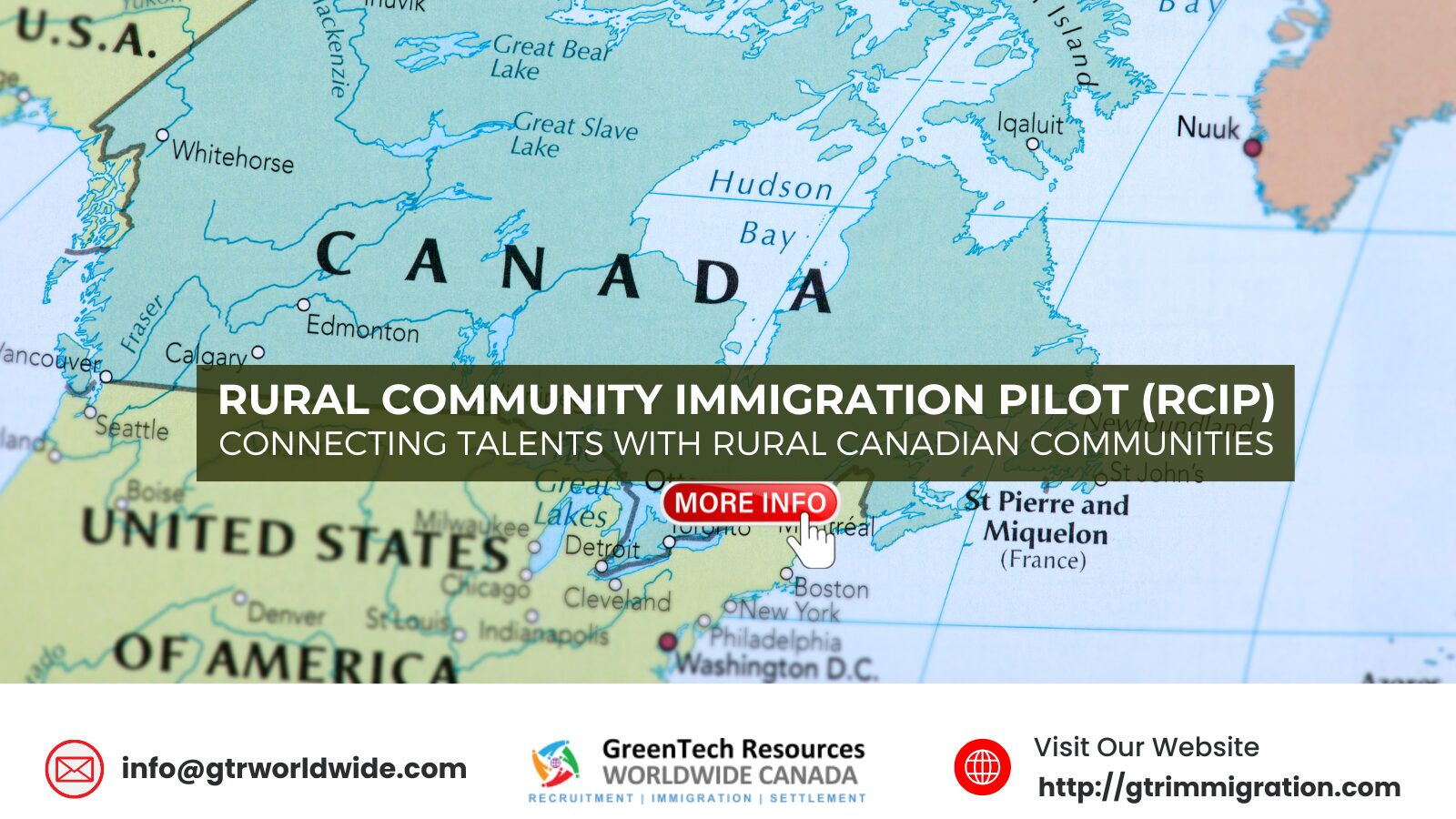Rural Community Immigration Pilot (RCIP) – Connecting Talents with Rural Canadian Communities

On January 30, 2025, Canada launched the Rural Community Immigration Pilot (RCIP), a new pathway to permanent residence aimed at addressing labor shortages in rural and remote communities. This initiative is part of a broader effort to attract skilled workers to areas outside major urban centers, ensuring balanced regional development across the country.
Overview of the RCIP
The RCIP offers a direct route to permanent residence for foreign nationals who:
- – Have a genuine, full-time, permanent job offer from an employer in one of the participating communities.
- – Possess at least one year of continuous work experience (minimum 1,560 hours) in the past three years.
- – Meet minimum language requirements: Canadian Language Benchmark (CLB) 6 for NOC 0 and A jobs, CLB 5 for NOC B, and CLB 4 for NOC C and D.
- – Hold a Canadian high school diploma or an equivalent foreign credential, verified through an Educational Credential Assessment (ECA).
- – Demonstrate intent to reside in the community and show proof of settlement funds.
- – Obtain a recommendation from a local economic development organization.
Participating Communities
Fourteen communities across Canada have been selected to participate in the RCIP:
-
Nova Scotia: Pictou County
-
Ontario: North Bay, Sudbury, Timmins, Sault Ste. Marie, Thunder Bay
-
Manitoba: Steinbach, Altona/Rhineland, Brandon
-
Saskatchewan: Moose JawNorthern
-
Alberta: Claresholm
-
British Columbia: West Kootenay, North Okanagan Shuswap, Peace Liard
Each community is represented by a local economic development organization that collaborates with Immigration, Refugees and Citizenship Canada (IRCC) to identify labor gaps, designate trustworthy employers, and recommend suitable candidates for permanent residence.
Application Process
Prospective applicants should:
-
Secure a job offer from a designated employer in one of the participating communities.
-
Obtain a recommendation from the community’s economic development organization.
-
Apply for permanent residence through IRCC.
Some communities may also offer an optional work permit to allow candidates to start working while their permanent residence application is being processed.